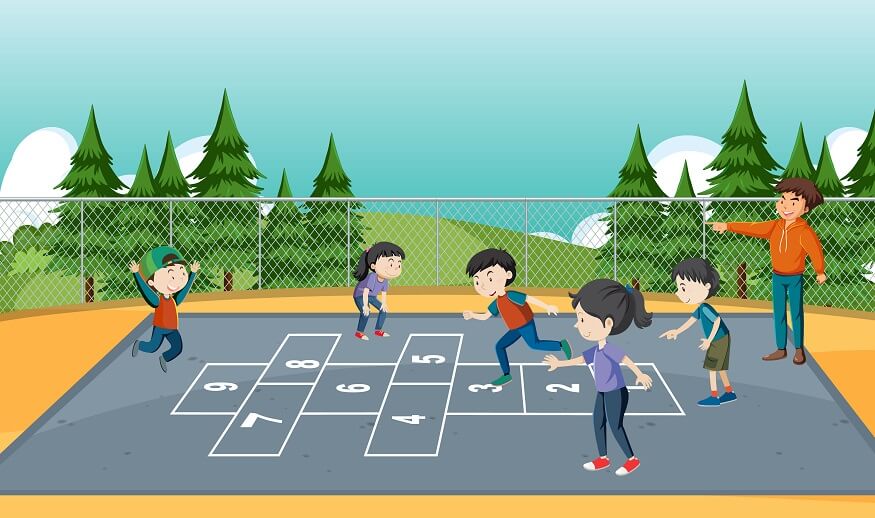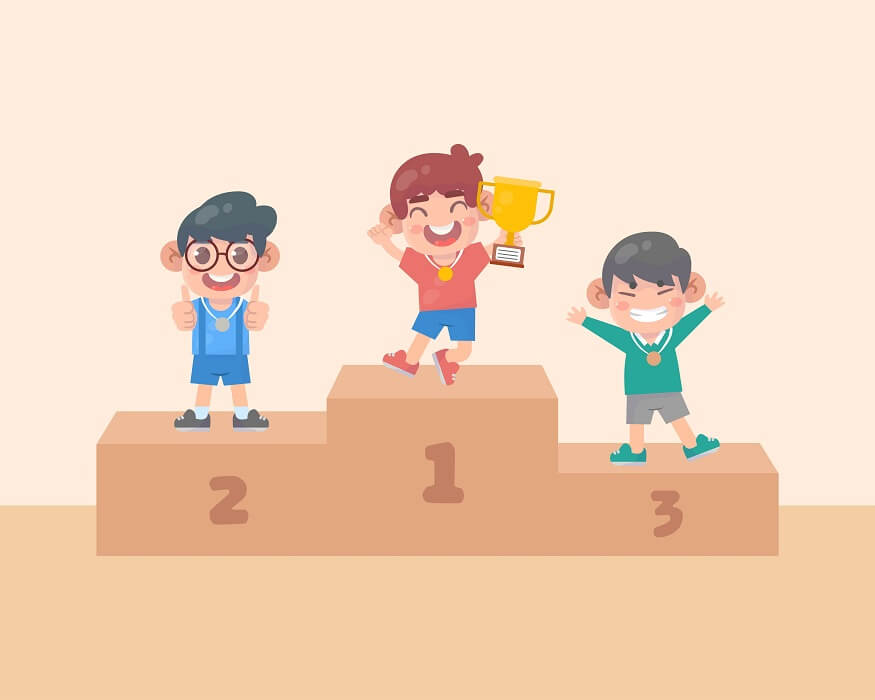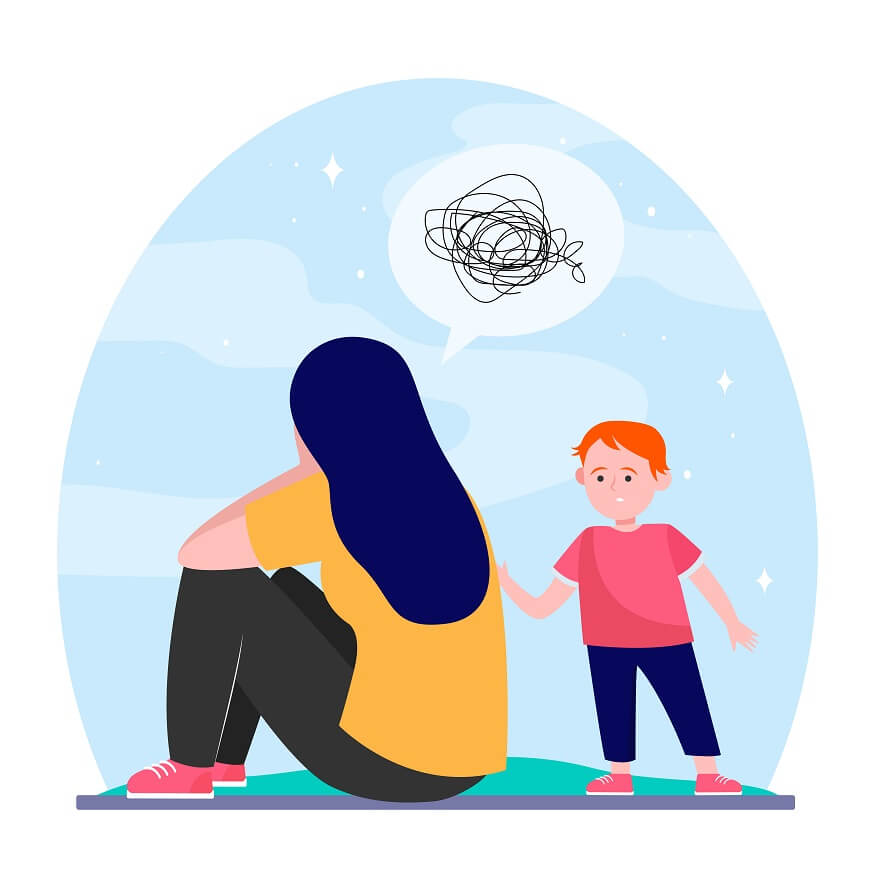Outdoor activities that enhance gross motor skills play an important role in a child’s physical and overall development. These activities provide a number of benefits that contribute to their growth, well-being, and future success. Here are 20 outdoor activities that promote motor skills development.
20 Outdoor Activities to Improve Motor Skills:
- Bike Riding:
Cycling is an excellent activity for improving leg strength, balance, and coordination. Riding a bike helps children develop their gross motor skills while having fun outdoors.
- Playground Play:
Climbing, swinging, sliding, and jumping on the playground equipment all contribute to the development of upper body strength, balance, and coordination.
- Running Games:
Engage children in various running games like tag, relay races, or obstacle courses. Running helps improve cardiovascular fitness and overall body movement.
- Ball Games:
Activities like soccer, basketball, and catch involve running, kicking, and throwing, which enhance gross motor skills, hand-eye coordination, and teamwork.
- Hula Hooping:
Hula hooping is a fun way to improve core strength, balance, and coordination. Children can experiment with different movements and tricks.
- Jump Rope:
Skipping rope helps with cardiovascular fitness, rhythm, and leg coordination. Encourage children to try different jump rope tricks to challenge themselves.
- Hopscotch:
Drawing a hopscotch pattern with chalk on the ground allows children to practise hopping, jumping, and balancing on one foot.
- Nature Scavenger Hunt:
Create a scavenger hunt with a list of items for children to find in nature. This activity encourages exploration, balance, and spatial awareness.
- Water Play:
Running through sprinklers, playing with water balloons, or splashing in a pool improve gross motor skills while keeping kids cool on hot days.
- Nature Walks:
Taking nature walks allows children to explore different terrains, improving balance, and coordination as they navigate uneven surfaces.
- Sidewalk Chalk Games:
Drawing paths, mazes, or balance beams with chalk on the pavement gives children opportunities to practise balance and agility.
- Rolling Down Hills:
Rolling down gentle grassy hills encourages vestibular stimulation and core strength.
- Tug of War:
This classic game helps improve upper body strength, grip, and coordination while promoting teamwork.
- Outdoor Yoga:
Practising yoga outdoors allows children to work on flexibility, balance, and body awareness in a natural setting.
- Backyard Obstacle Course:
Set up an obstacle course with items like hula hoops, cones, and stepping stones. Children can crawl, jump, and climb to develop their gross motor skills.
- Parachute Play:
Using a parachute for games like “Popcorn” or “Mushroom” encourages group coordination, cooperation, and upper body strength.
- Kite Flying:
Running and manoeuvring a kite in the wind helps children build endurance and hand-eye coordination.
- Balance Beam:
Create a balance beam with a wooden plank or a sturdy log. Balancing the beam enhances core strength and proprioception.
- Water Balloon Toss:
Throwing and catching water balloons improve hand-eye coordination while providing a refreshing outdoor activity.
- Rolling Ball Games:
Games like bowling or rolling balls through targets help develop hand-eye coordination and precision.
Importance of Outdoor Activities to Enhance Motor Skills:
Here are some important reasons why outdoor activities focusing on gross motor skills activities are crucial for children:
- Physical Development:
Outdoor activities challenge children’s bodies, helping them develop stronger muscles, and improve balance, coordination, and overall physical fitness. Running, jumping, climbing, and riding improve gross motor abilities and help the development of healthy bones and muscles.
- Cognitive Development:
Fine motor skills activities involve planning, problem-solving, and decision-making. Children must assess their environment, evaluate potential risks, and make quick judgments during outdoor play, promoting cognitive development and critical thinking skills.
- Sensory Stimulation:
Outdoor activities provide a rich sensory experience as children interact with natural elements like grass, sand, water, and the wind. These sensory events help a child’s sensory processing abilities, which are important for learning and adaptive behaviour.
- Social Skills:
Outdoor play often involves group activities, encouraging children to collaborate, communicate, and negotiate with their peers. They learn to take turns, share resources, and work together towards common goals, fostering essential social skills, which highlights motor skills development.
- Emotional Well-being:
Being outdoors in nature has a positive impact on a child’s mental health. It reduces stress, anxiety, and frustration while promoting a sense of freedom, exploration, and happiness.
- Physical Health:
Fine motor skills activities provide children with opportunities for regular physical exercise, reducing the risk of obesity and related health issues. Active play encourages heart wellness, boosts the immune system, and improves general mental and physical health.
- Confidence Building:
As children master new gross motor skills, their confidence and self-esteem grow. Achieving milestones like climbing a tree or riding a bike without training wheels boosts their self-confidence and belief in their abilities.
- Body Awareness:
Outdoor activities that involve spatial awareness, balance, and proprioception help children become more aware of their bodies and how they move in space. This heightened body awareness contributes to better coordination and motor control.
- Healthy Habits:
Engaging in outdoor play from a young age promotes an active lifestyle, laying the foundation for a lifetime of healthy habits. Children who participate in outdoor activities are more likely to continue these practices into the age of majority.
- Attention and Focus:
Outdoor play stimulates a child’s senses and encourages curiosity, which can lead to improved attention and focus in other areas of their life, including academics.
- Independence:
Outdoor activities often involve less structured play, allowing children to explore their environment and take initiative. This independence nurtures creativity and resourcefulness.
- Appreciation for Nature:
Being outdoors exposes children to the wonders of nature, fostering an appreciation for the environment and a sense of responsibility towards its preservation.
Conclusion:
At EuroSchool, we believe that parents and educators may help to build a completely qualified person by encouraging outdoor play and providing opportunities for gross motor skill development. Allowing children to explore, play, and connect with nature and other children outside can lead to a more enjoyable and healthier future for children. Do visit Euroschool to understand these concepts and experience them.










